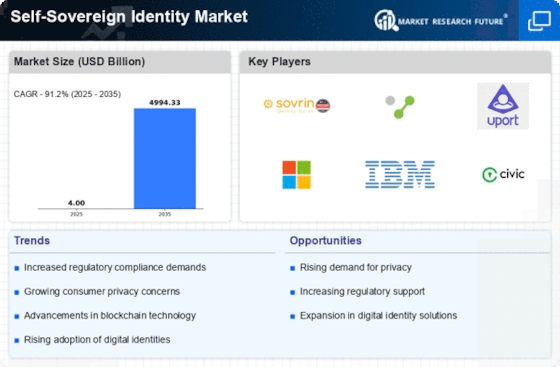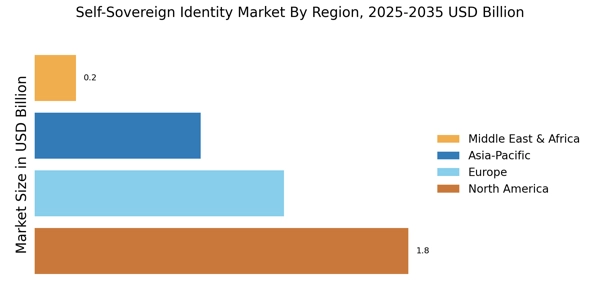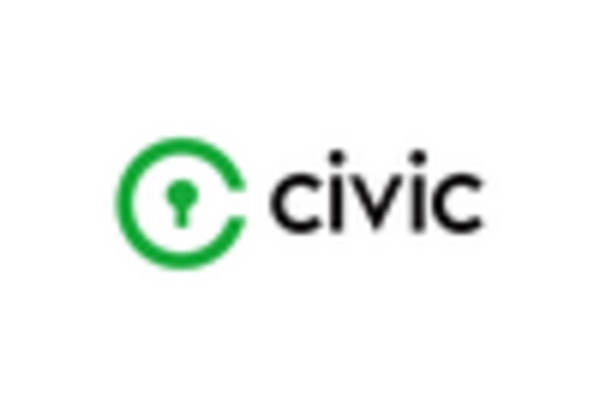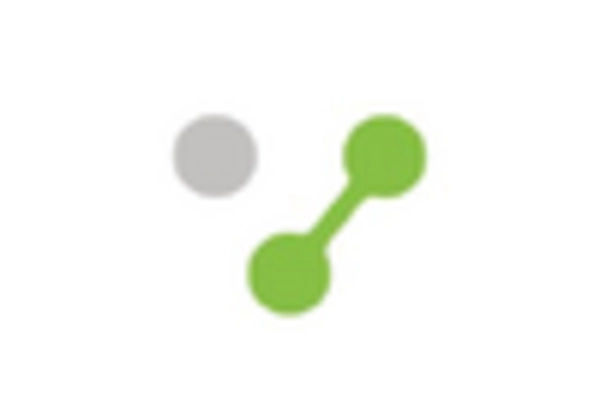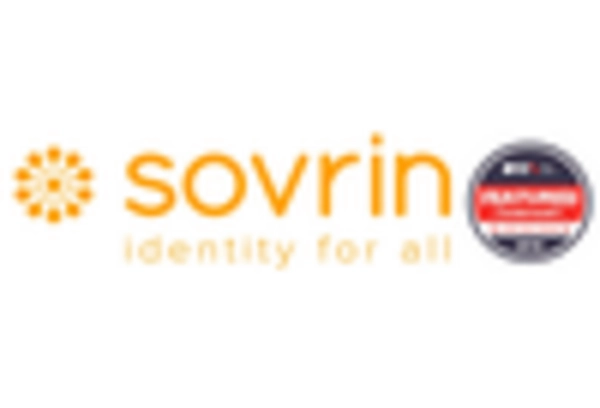Rising Demand for Data Privacy
The increasing awareness of data privacy issues among individuals and organizations appears to be a primary driver for the Self-Sovereign Identity Market. As data breaches and privacy violations become more prevalent, consumers are seeking solutions that empower them to control their personal information. This trend is reflected in a survey indicating that over 70% of respondents prioritize data privacy when engaging with digital services. Consequently, businesses are compelled to adopt self-sovereign identity solutions to enhance user trust and comply with stringent data protection regulations. The Self-Sovereign Identity Market is thus witnessing a surge in demand as organizations recognize the necessity of safeguarding user data while providing seamless access to services.
Growing Adoption of Digital Services
The proliferation of digital services across various sectors is driving the demand for self-sovereign identity solutions within the Self-Sovereign Identity Market. As businesses increasingly transition to online platforms, the need for secure and efficient identity verification processes becomes paramount. This trend is particularly evident in sectors such as finance, healthcare, and e-commerce, where identity verification is critical for user trust and regulatory compliance. Reports indicate that the digital services market is expected to reach trillions in value by 2026, further underscoring the necessity for robust identity management solutions. Consequently, the Self-Sovereign Identity Market is poised for substantial growth as organizations seek to implement effective identity solutions to support their digital transformation initiatives.
Shift Towards Decentralized Identity Models
The shift towards decentralized identity models is emerging as a pivotal driver for the Self-Sovereign Identity Market. Traditional identity management systems often rely on centralized authorities, which can lead to vulnerabilities and inefficiencies. In contrast, decentralized models empower individuals to control their own identities, reducing reliance on third parties. This paradigm shift is gaining traction among organizations seeking to enhance security and user autonomy. Market analysis suggests that the adoption of decentralized identity solutions could increase by over 40% in the next five years, indicating a robust growth trajectory for the Self-Sovereign Identity Market as stakeholders recognize the benefits of decentralization.
Increased Regulatory Compliance Requirements
The evolving landscape of regulatory compliance is a crucial factor influencing the Self-Sovereign Identity Market. Governments and regulatory bodies are implementing stricter data protection laws, such as the General Data Protection Regulation (GDPR) and the California Consumer Privacy Act (CCPA). These regulations necessitate that organizations adopt robust identity management solutions to ensure compliance and avoid hefty fines. As a result, the demand for self-sovereign identity solutions is expected to rise, as they provide a framework for individuals to manage their own data while meeting regulatory requirements. This trend indicates a growing recognition of the importance of self-sovereign identity in achieving compliance within the Self-Sovereign Identity Market.
Technological Advancements in Identity Solutions
Technological innovations are significantly shaping the Self-Sovereign Identity Market. The advent of advanced cryptographic techniques and decentralized technologies has enabled the development of more secure and efficient identity management systems. For instance, the integration of zero-knowledge proofs allows users to verify their identity without disclosing sensitive information. This technological evolution is expected to drive market growth, with projections indicating a compound annual growth rate of over 30% in the coming years. As organizations increasingly adopt these cutting-edge solutions, the Self-Sovereign Identity Market is likely to expand, offering enhanced security and user experience.


